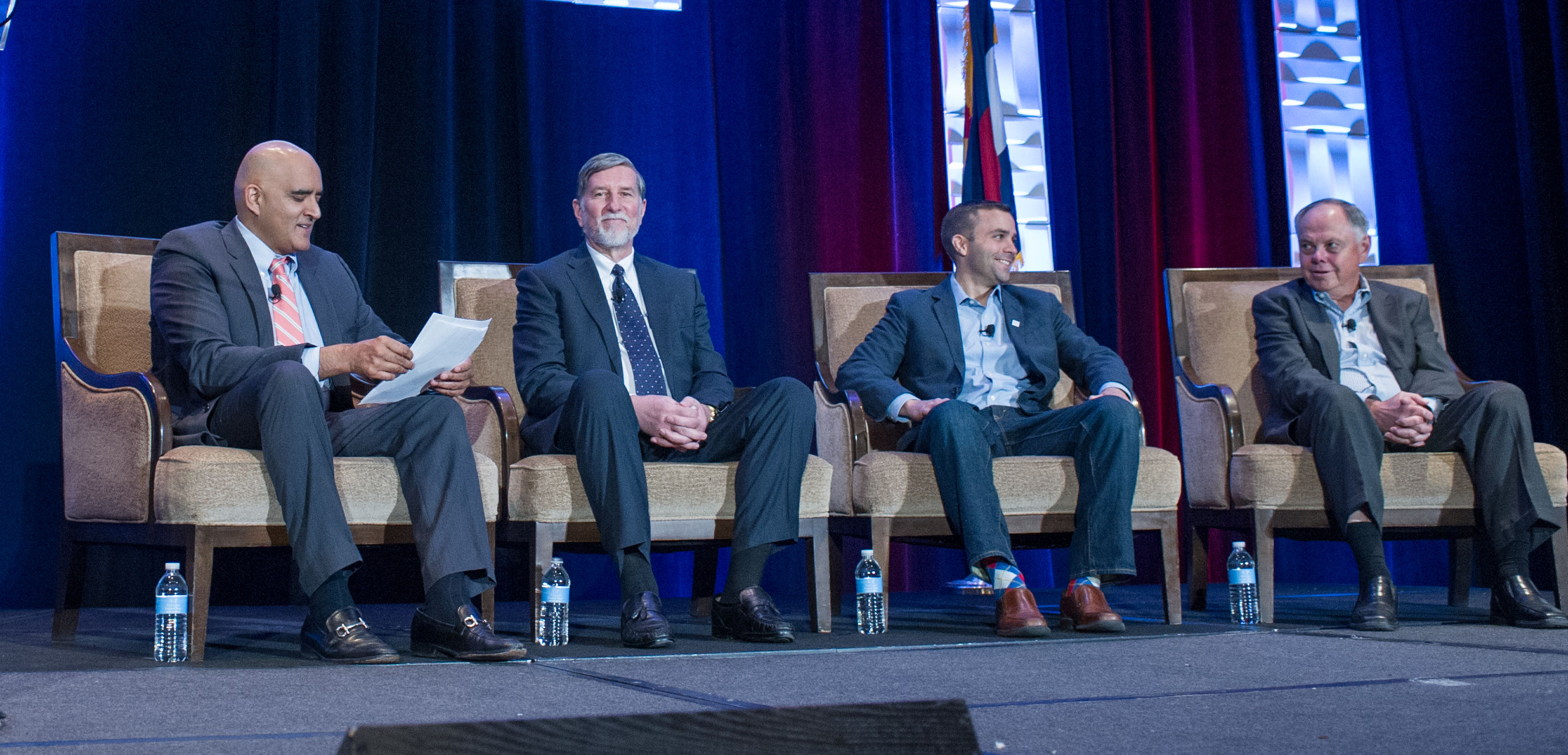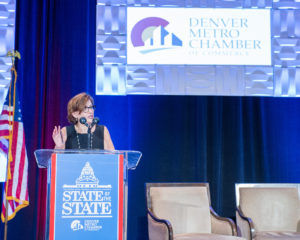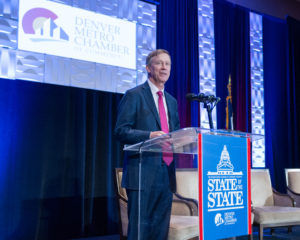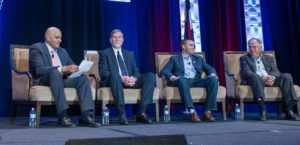
Compromise was applauded on solving years-long discussed challenges like construction defects reform from the governor and the head of the Denver Metro Chamber of Commerce as they reflected on the end of the legislative session with more than 700 business leaders today.

“(Compromise) shouldn’t take the most courage. It should be the obvious choice, the easiest route. But it’s not always how it works,” Chamber President and CEO Kelly Brough said at State of the State – the Chamber’s annual post-session luncheon presented by Eide Bailly that also features the first reactions from the governor.
Brough called out House Reps. Alec Garnett, Lori Saine and Cole Wist along with Speaker Crisanta Duran and Sens. Lucia Guzman and Jack Tate for staying at the table to find compromise.
The Hospital Provider Fee was also reclassified as an enterprise fund, no longer counting against our TABOR cap, and able to be put toward funding for transportation and education.
“Truly our state will benefit as a result of this work,” Brough said.
There were also calls for legislators to consider a special session to focus on infrastructure funding.
“We hope those legislators who were not able to support this proposal would be willing to go back to the table and work with us again to find a proposal either in a special session or early in next session,”

Gov. John Hickenlooper also highlighted wins on construction defects reform and the hospital provider fee but pointed to transportation and other issues that were left unresolved when the legislative session ended late Wednesday night.
“If this lack of infrastructure keeps up, eventually the roaring economy is going to sound more like a whimper,” Hickenlooper said. “There’s certainty no repairing the loss of the statewide ballot issue.”
Utah spends four times more than Colorado on transportation infrastructure, he said, warning that a lack of investment now could impact the state and its economy.
Brough also heeded warnings of challenges that could derail that success: a housing market that is pricing out entry-level and retired buyers, congestion and a lack of investment to address it and the limitations on our elected officials based on formulas such as the Gallagher Amendment, Amendment 23 and the Taxpayer’s Bill of Rights that are locked into Colorado’s constitution.
Panel focuses on smart phones and smart cities
 Personal flying cars and artificial intelligence were just a few futuristic ideas that consumers will see in as few as five years, a panel of auto and transportation experts told the audience.
Personal flying cars and artificial intelligence were just a few futuristic ideas that consumers will see in as few as five years, a panel of auto and transportation experts told the audience.
Moderated by Colorado Department of Transportation Executive Director Shailen Bhatt, the panel featured experts from Audi, Uber and Mobility Choice – an initiative led by the Chamber to convene state and regional transportation agencies, business and the technology sector.
“Technology is transforming transportation at a breathtaking pace,” Bhatt said.
But, it’s important for all sectors to work together to ensure that access to mobility is available to all.
“We can’t leave anybody behind,” Hunt said, noting that the focus still should be to get everyone to work, school and health care.
Tom Clark awarded Robert Blankenship Heart Award
Recently retired EDC head Tom Clark was awarded the Chamber’s Robert Blankenship Heart Award – named in memory the Chamber’s former COO. The award is generally a surprise for the honoree. However, Clark was unable to attend and shared a letter for thanks.
“To receive the Robert Blankenship Heart Award from the Chamber for my service to the organization is humbling. The fact that it is named after a friend who gave his heart and soul to the Chamber, its mission, but most of all its people, is truly overwhelming,” Clark said in the letter, read by Chamber Board of Directors Chair Todd Munson.
He shared that he has a fountain at his home as a memorial to Blankenship – a way to keep him in his thoughts each day.
“I share the passion that Robert held for the Chamber,” Clark said in his letter. “Its egalitarianism, its commitment to meritocracy in choosing its leadership (not just putting the wealthiest or most powerful in charge), its commitment to market-based solutions to community building, but never afraid to show its heart when others need help.”
